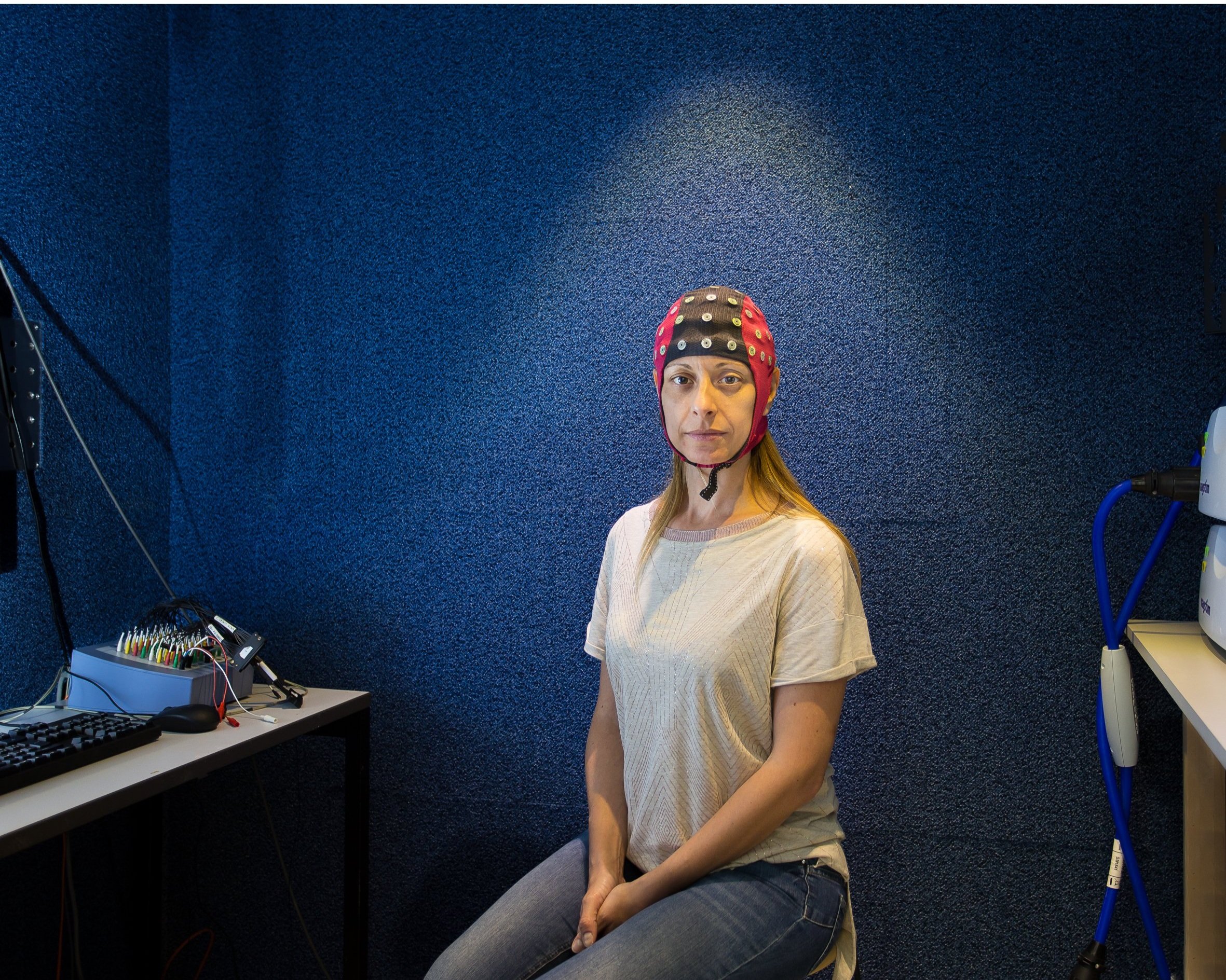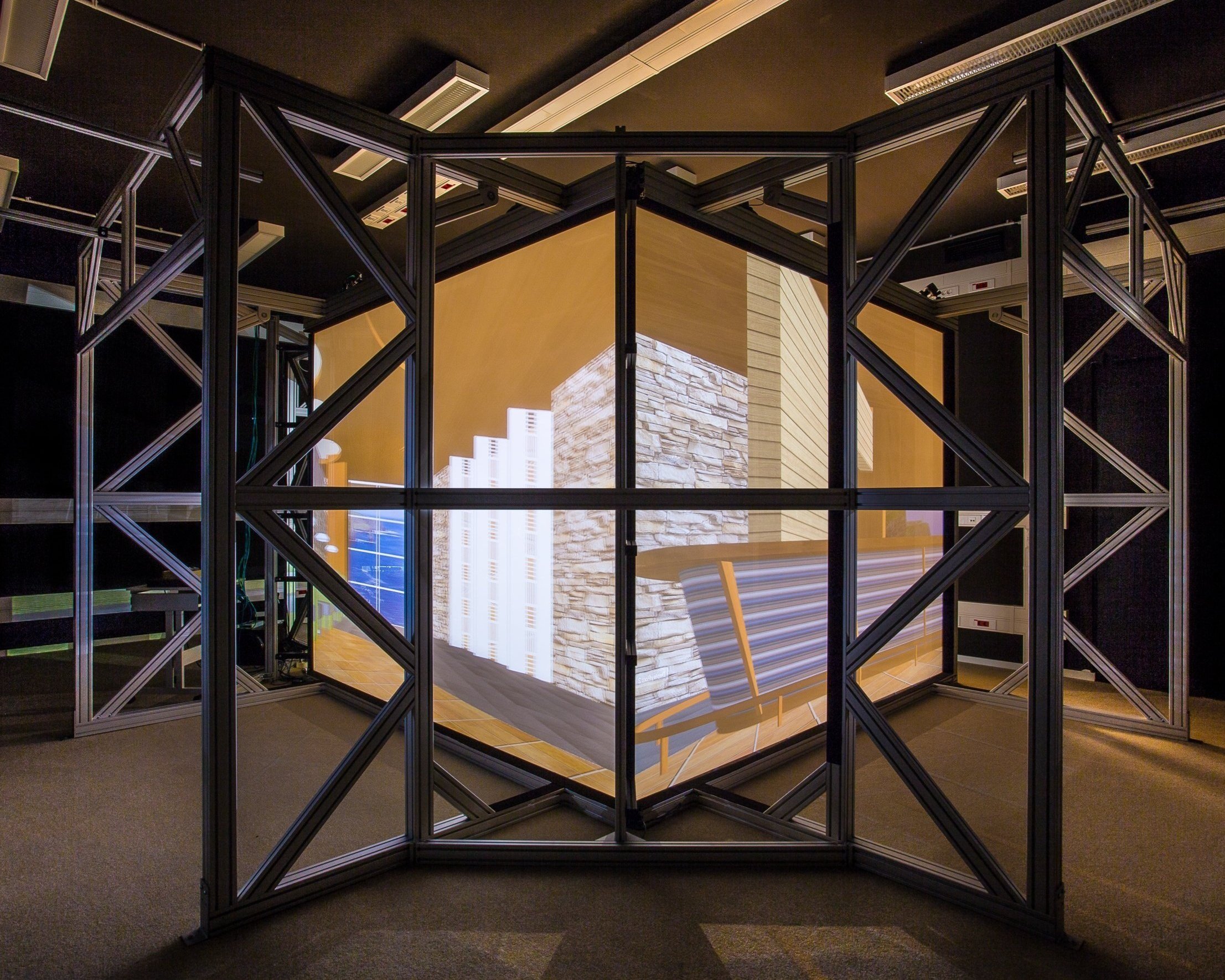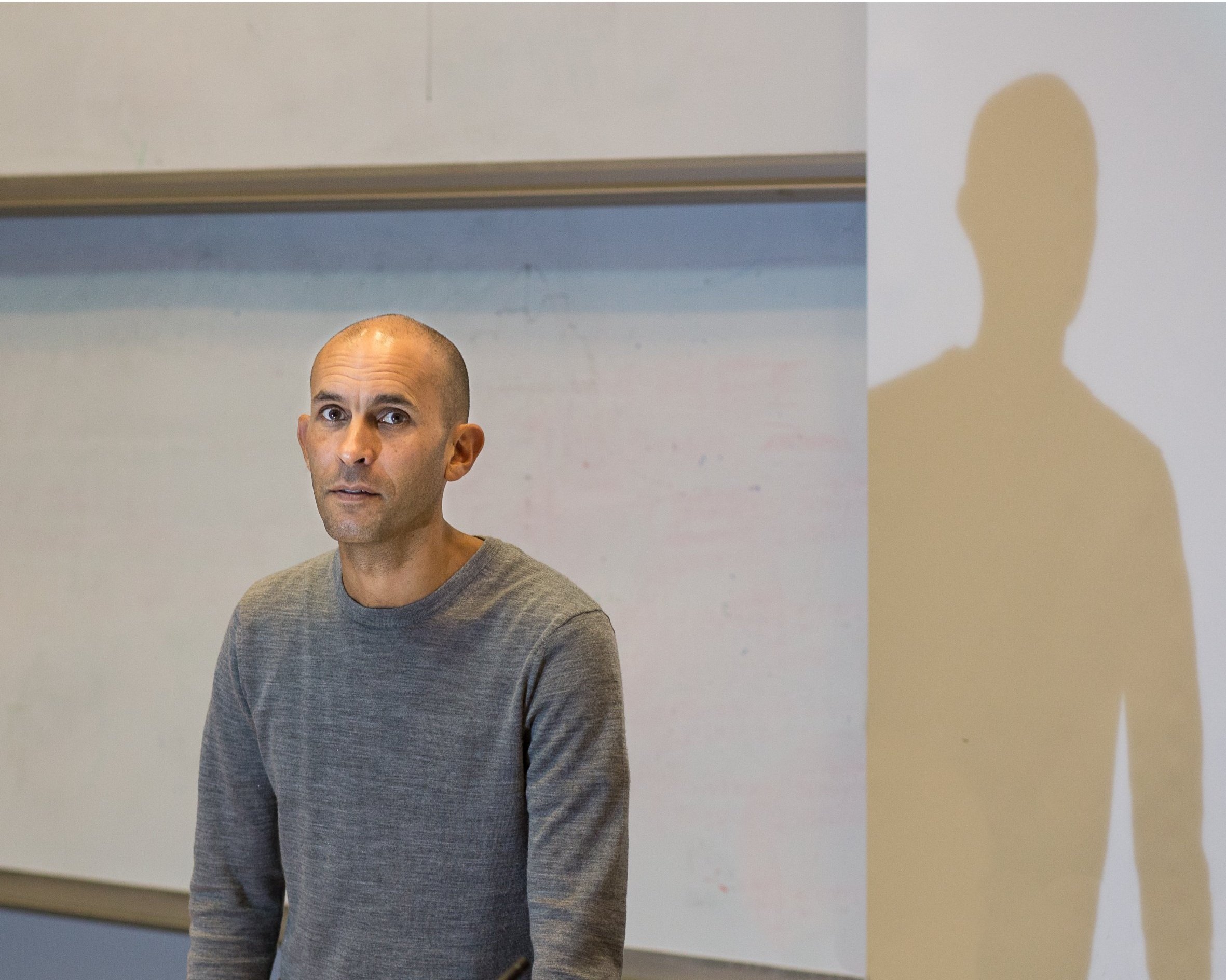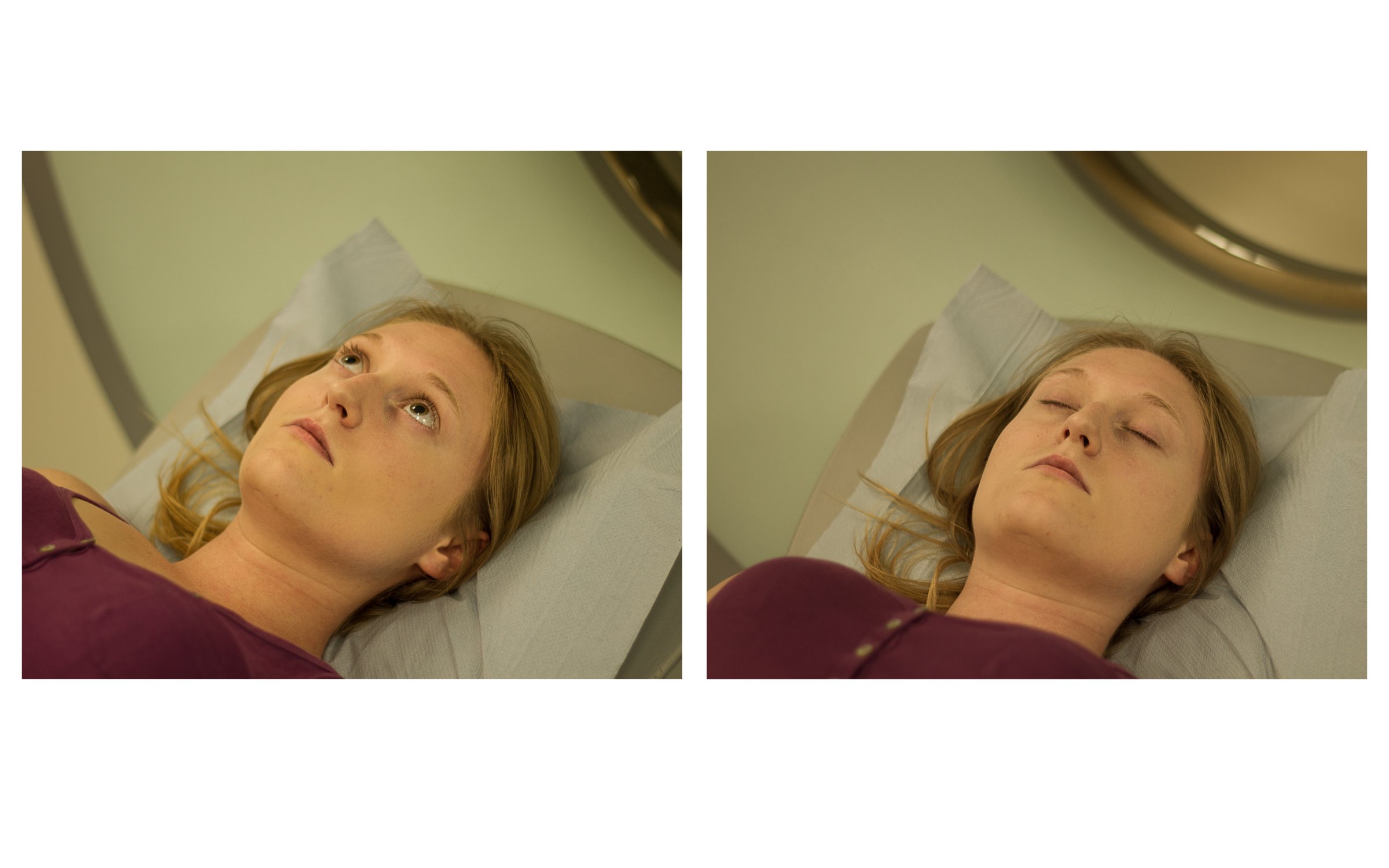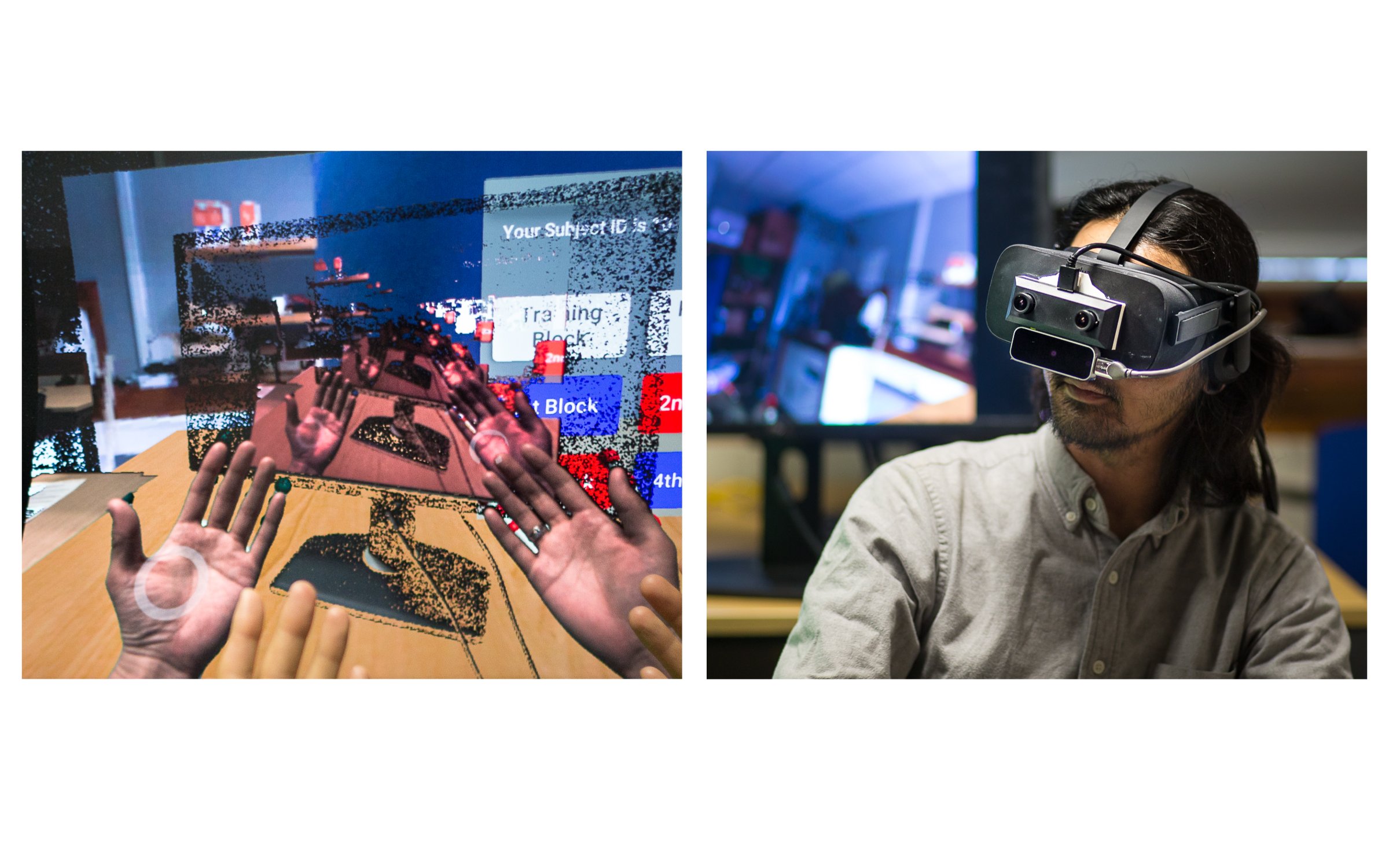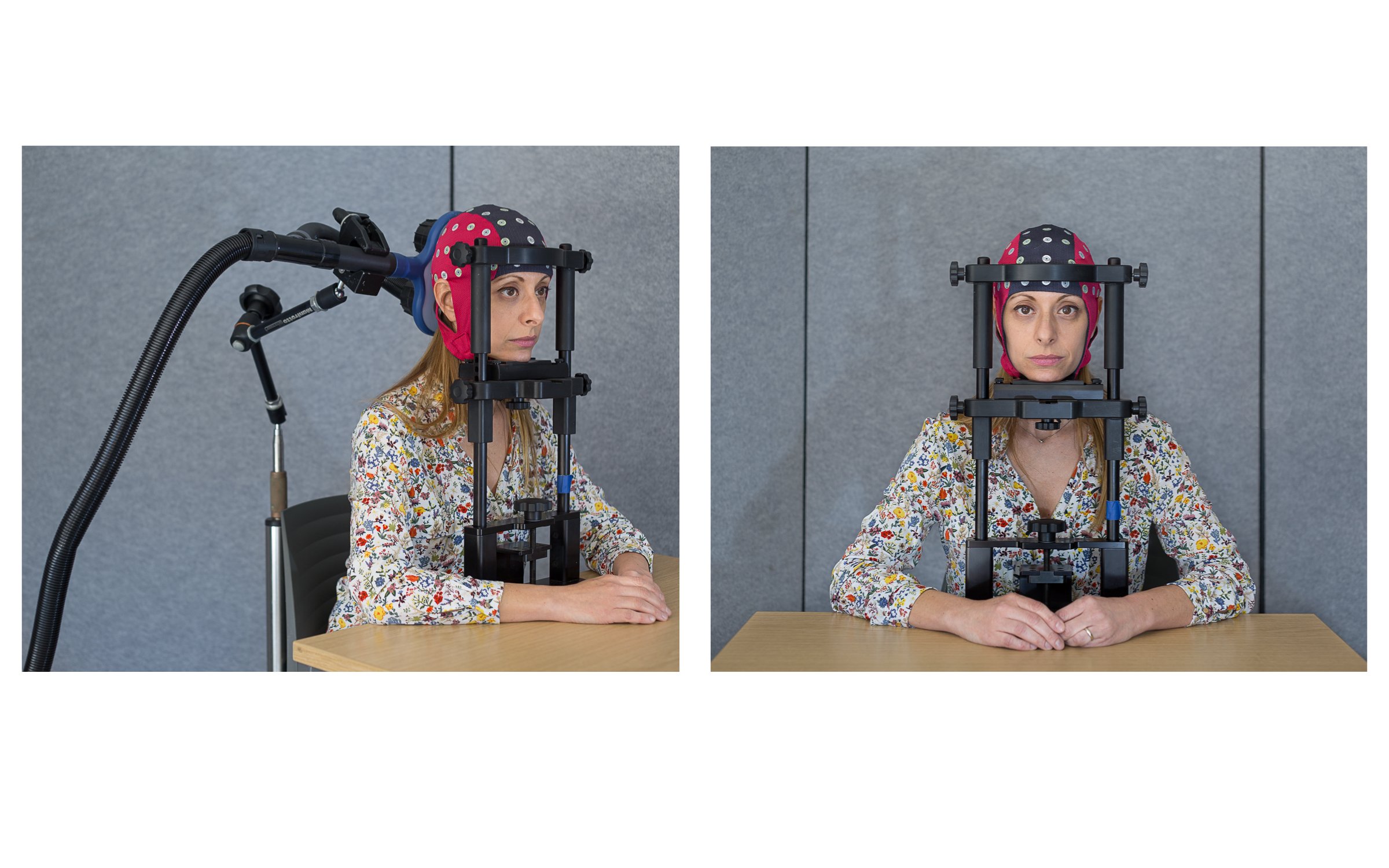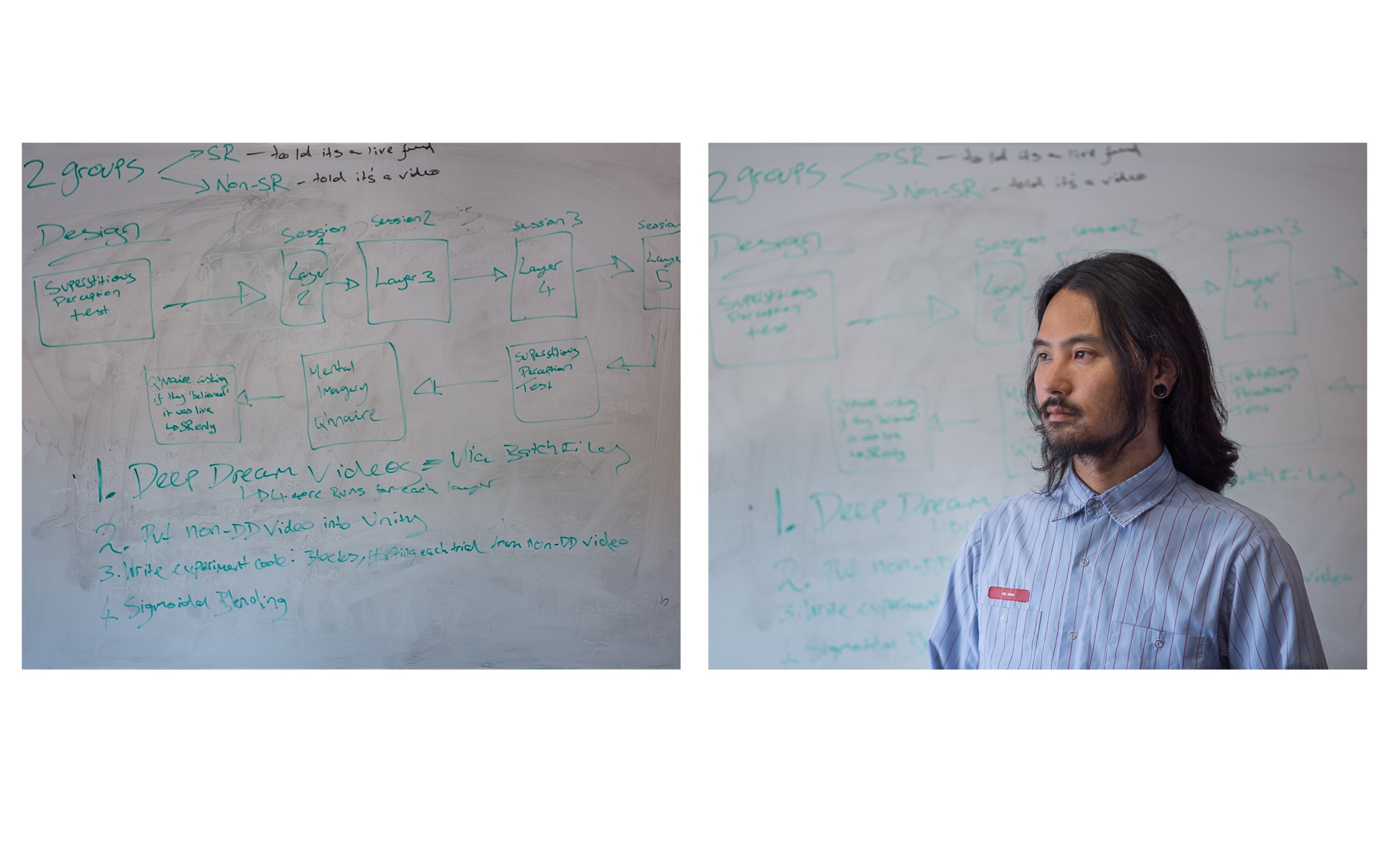Thresholds of the Mind
We are at the threshold of crucial understanding that will have radical implications in terms of how we understand ourselves and how we perceive the world around us. The exponential growth of technology twinned with the development of science in key areas which all interlink, particularly genomics, consciousness science and AI technology, will have a huge impact upon the world we live in. Experimental research methods have a vast range of clinical applications, including psychiatry and robotics. More to the point, new scientific enquiry questions the ‘reality’ we live in and what we mean by mental health.
The theme of consciousness brings into question the nature of perception, the overlap between the science of mind and the psychology of self. In this project there is an ambiguity of the documentary image: the test subject can appear less human, more robotic, despite the fact that the scientific enquiry is aimed at discovering what makes us human.
The Sussex Centre for Consciousness Science seeks to unravel the complex brain mechanisms that generate consciousness through a variety of methods, including the use of hypnagogic scanners and adapted Oculus Rift Goggles. Augmented reality environments are created in order to investigate interoception (awareness of bodily states), proprioception (awareness of how our body is positioned in space) and out of body experiences.
The Max Planck Institute for Psycholinguistics researches the psychological, social and biological foundations of language and is at the forefront of interdisciplinary research into the foundations of language and communication.
Thresholds of the Mind is a photography project documenting research centres that are at the forefront of this scientific research. It is an enquiry into the objective and subjective sense of self, asking the questions of what it means to be conscious, sentient and human.
The images for this project were taken at The Sussex Centre for Consciousness Science, Sussex University, UK and the Max Planck Institute for Psycholinguistics, Nijmegen, Netherlands.

